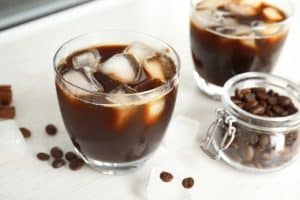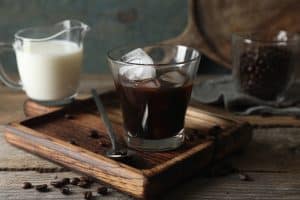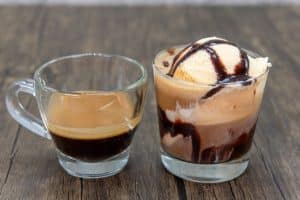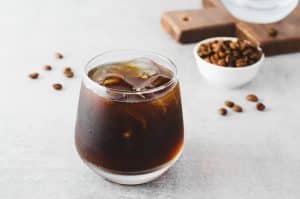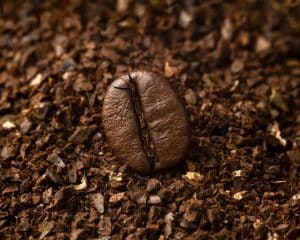How to Make Coffee Taste Good: Tips and Tricks

While many coffee lovers may argue that coffee beans taste perfect just infused naturally with water, others will tell you that you can make coffee taste even better. There are many ways to improve your coffee, and I’m going to show you how.
Coffee is a delicious and versatile beverage that you can make in multiple ways. You could try your hand at a bold espresso or an equally bold Moka pot or French press coffee. If you feel like you have some finesse, you could also try a pour-over using expert advice to get the method right.
Beyond all those options for brewing, you can find extra tips and techniques to learn how to make your coffee taste even better. Whether it is simply perfecting your brewing techniques or adding some extra flavor, you can enjoy a better-tasting cup every time.
How to Make Coffee Taste Good: Techniques and Tips
There are two main ways to make your coffee taste better: You can start by improving your brew techniques and methods and, if you still don’t like the taste enough, you can add some extras to your cup. This will improve the taste if you prefer a sweeter brew, but it will also mask the actual flavor of the coffee.
If you are looking to improve your coffee while still being able to taste the bold or complex tastings notes, then you need to focus on improving your techniques. This starts with your bean choice and ends with your machine and how you look after it.
Here are the first few steps you should take if you are unhappy with the taste of your cup of java.

#1 The Beans Are Important
The first thing you have to do is make sure the base is correct, so choose high-quality coffee beans to start with.
Bean choice is important and will affect the taste of your coffee quite a lot. The first step is to choose fresh beans that have been recently roasted. You should consume beans within a month of roasting, and this is sometimes only possible when you purchase from a local roaster.
Buying coffee straight from a local roaster allows you to find out the exact roasting date and request the freshest coffee. If you are purchasing from large chain stores, you might find the coffee was roasted over a month ago by the time you go to buy it.
In addition to finding fresh coffee, you should also choose the beans with the best flavors for you. Each region produces different flavor profiles, and this is an entirely subjective choice. The flavor notes range from lemon, berry, and cocoa, to chocolate and vanilla, to spicy, smokey, and floral flavors.
Once you find the tastes you enjoy, you can then also play around with roast levels. The different levels of roasting produce different flavors too. You could get a light roast that has an acidic taste with notes of citrus, or you could choose a darker roast with bold chocolate and woody flavors.
Choosing coffee beans is entirely personal preference, and you will need to explore different beans to find your favorites. Luckily that is the fun part.
#2 Grind Size Really Matters
Once you have the right beans, you should begin focusing on grind size because this will affect the taste of your coffee. Each brew method requires a specific grind size, and you should save the grinding until right before you brew.
While coffee beans take a month to get stale, ground coffee does so even sooner and the grounds will start losing flavor within minutes of grinding. Find the correct grind size for your brew method to ensure the coffee will extract at the right rate. For instance, you would use a coarse grind for a French press and a very fine grind for espresso.
If your grinds are the incorrect size, the coffee could over- or under-extract and lead to a sour or a very bitter-tasting brew.
#3 Use Proper Water
Once you have your grind size right, it is time to check your water. Many people will skip this step as they believe water can’t affect the taste of coffee too much. However, this is not true. The quality of the water you use will indeed affect the taste, because water contains various minerals and other elements.
Basically, you should use filtered water to get the best results. However, you also need to take note of the water temperature. Coffee enthusiasts tend to prefer their own methods with heating water but they usually choose between under-boiling the water or fully boiling the water and letting it cool down for a minute or two before using.
Typically, your water temperature should sit somewhere between 195–295°F for optimal brewing results.
#4 Invest in a Proper Brewer
Now that your water is pure and at the right temperature, we need to talk about what you’re going to put it in. Those who are new to homebrewing may decide to start with a cheap coffee maker to ease themselves into the process and see whether they will stick with homebrewing.
However, this could cause you to stop your homebrewing when the coffee is just not tasting right. You might even think you are at fault and just can’t get the techniques right. In reality, it could be your machine that isn’t good enough to make great-tasting coffee.
If you have tried the other techniques and still can’t seem to get your coffee right, it may be time to try out a better coffee maker, like a decent espresso machine maybe?
#5 Clean Your Machine
Once you have a quality machine, make sure you’re cleaning it often enough. Each machine will need to be cleaned a certain amount of times to prevent stale bits of coffee from contaminating your brew.
It’s best to follow the instructions in the manual that comes with the machine to make sure you use the right cleaning practices for your specific machine.
How to Make Coffee Taste Better with Add-ons
If you have mastered the techniques to make a quality cup of coffee, you may still want your coffee to taste even better. Adding sugar is a simple way to make your coffee sweeter, but this will add in a lot of calories too. There are other ways to sweeten your brew without as many calories.

Try adding the following in small amounts and see if the taste of your coffee improves at all:
- Cinnamon
- A pinch of salt
- Vanilla extract
- Nutmeg
- Honey
- Maple syrup
- Cocoa powder
- Unsalted butter
FAQs on Making Coffee
How does the coffee-to-water ratio affect the taste?
When brewing coffee, you should be mindful of the ratio of coffee to water. This will affect your coffee by making it stronger, which may be too bitter for you or too weak, which makes it come out watery. The “golden ratio” of coffee and water is one to two tablespoons of coffee for every six ounces of water.
Why would my cappuccino taste burnt?
If you are attempting to brew up a cappuccino at home, you may find that you keep ending up with a burnt-tasting beverage. When making cappuccino, the milk is very temperamental and can burn quite easily. The burnt taste is likely coming from the milk being too hot, so reduce the heat when frothing your milk.
What makes bad coffee?
There are several reasons your coffee may taste bad, but luckily this means there are plenty of ways to fix it. The most common reasons for bad-tasting coffee are usually stale beans, incorrect grind sizes, and incorrect brewing techniques.
Start by choosing fresher beans and learning the right grind size for your brew method. Then follow the brewing instructions very carefully.
Why am I experiencing bad acid reflux from coffee?
If you are constantly experiencing bad acid reflux from your coffee, you may need to take note of the acid content of coffee beans. Coffee beans naturally contain acids, and sometimes this could cause symptoms such as acid reflux. Try choosing a darker roast or a decaffeinated variation to prevent this discomfort after drinking your tasty brew.
A Better Tasting Brew
Implementing these techniques have taught you how to make coffee taste good — as good as any barista could make it. There is a reason why many people describe coffee brewing as an art and science because of all the elements you need to perfect to get a proper-tasting cup of Joe.
Practice is key and so is your preference, so start by following instructions carefully, but then tweak it to suit your tastes. Everyone enjoys coffee differently, and maybe adding some sweeter elements is what you need. Either way, if you are ready for consistently great-tasting coffee and would like to try out some new beans, why not choose the best coffee bean subscription?
Owen is a writer and editor at Caffe Streets who considers himself a coffee fanatic. He spends his time researching and testing different coffee beans and brewing methods and sharing what he learns with others.

